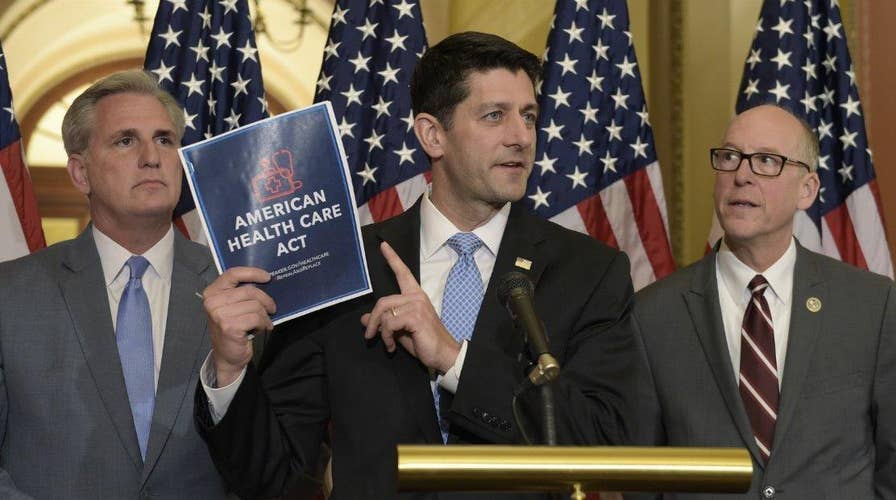White House and GOP push to revive health care reform
The 'Special Report' All-Star panel weighs in
Republicans are struggling with the repeal and replacement of ObamaCare.
They should be.
Health is a matter of life and death. People pay very personal attention to it. In the end, regular people skip past the macro policies that shape the nation and ask, "what about me?"
In our immediate network of family and friends, Callista and I know an older woman with a history of breast cancer who has had both hips replaced, a middle-aged woman taking anti-rejection medicine for a recent liver transplant, a young woman (30) diagnosed with breast cancer, a dear friend suffering from a rare disease in which his red blood cells no longer carry oxygen, and the list goes on.
In every case, the individuals and their family and friends will ask: How does this health care bill affect me? Will I be better or worse off? Their natural bias is against change, because they have adjusted to the current system and know how they are getting care today.
I am not arguing against repealing and replacing ObamaCare. It is a failing system that will ultimately cripple the country and leave millions without insurance coverage.
I am suggesting that its replacement must be carefully thought out. Every House and Senate Republican who deals with this issue, along with the leaders in the Executive Branch, will be asked a lot more questions about this bill than they would about other legislation. They must be able to answer those questions.
Health care is almost one-fifth of the national economy. That means nearly one dollar out of every five in the entire system is affected by health reform. Everyone who gets money from health care, and everyone who pays money for health care, has a direct, immediate personal interest in how their lives will be affected.
Speaker Paul Ryan was exactly right shortly after the House Republicans had to pull the health bill from the floor when he said, "What you're seeing is we're going through the inevitable growing pains from being an opposition party to becoming a governing party." He noted then that 64 percent of House Republicans have never worked with a Republican in the White House and majorities in both houses of Congress.
As Speaker Ryan concluded “It's a new system for people."
The same is true for President Trump and his White House team. No one on the team has ever shepherded a major reform through the Congress.
But House Republicans and the president can – and will – learn quickly. We can achieve a dramatically better health system.
We can pass very effective and ultimately very popular bills on health and health care.
Over the next several newsletters, I am going to outline the principles of "becoming a governing party," recognizing that it is a new system for the GOP team, and the principles of successful health reform.
Principle No. 1: A governing majority system always pays attention to the wishes of the American people, because that is what makes it a majority.
Minority parties develop the attitude that they are never going to be a majority anyway, so they might as well do what they want even if it infuriates the public. I fought with this mentality for 16 years in a House GOP that had been in the minority since 1954.
Ironically, the very nature of President Reagan (who had been a Democrat for most of his life and automatically thought about governing rather than opposing) made the House Republicans work as part of a governing majority from 1981-1988. As a second term member when Reagan came into office, I imbibed the spirit of governing from him. It was reinforced by studying Prime Minister Thatcher, who thought of herself as the leader of the next government – not the leader of the opposition.
My next newsletter will be about the health reform that the vast majority of Americans want. That is the starting point for a governing majority that wants to continue to govern.








































